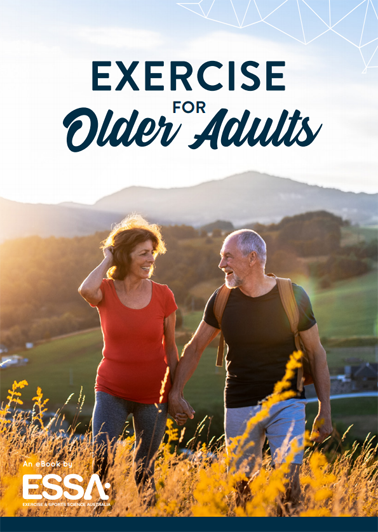
Helping You Better Understand Your Recovery
These resources are to facilitate understanding of the treatment you are receiving and are often used in conjunction with your management. Have a look!
We always welcome any questions you may have, especially how these may apply to your situation.
Understanding Pain
How does your brain respond to pain?
We are always interested in how your brain works and how our understanding can help with your recovery. You may find it interesting too!
Video: 4 mins 57 Secs
The Mystery of Chronic Pain
Because everyone loves a TED Talk, here’s another one. This one is a bit more scientific in nature, but still easy to understand.
Video: 8 mins 14 Secs
Understanding Pain in less than 5 minutes
This video helps to shed new light on the modern science of understanding pain and understand the difference between acute and persisting (chronic) pain.
It may be difficult to get your head around it at first, so feel free to ask us any questions and how it may apply to you.
Video: 5 mins
Understanding Pain: Choosing your Recovery
This video expands on the broader social and mental health aspects of persisting pain. These too are important in your recovery and are discussed during your rehabilitation to maximise your recovery.
Video: 2 mins 29 secs
Recovery Strategies -
Pain Guidebook
A great FREE ebook developed by Greg Lehman (physio, chiro, researcher and educator) to help both practitioners and patients - Recovery Strategies - Pain Guidebook. It can help to further consolidate the information you receive during treatment, reinforcing important aspects in your recovery. Feel free to ask us any questions you may have and how they applies to your injury and recovery.
Even better, there are also translated versions in Italian, German, Swedish, French, Hebrew, Dutch, Spanish and Traditional Chinese!
Opioids and Pain
Analgesics (commonly known as Pain Killers) are medications which can help manage pain. However, strong medications such as opioids may not be effective in chronic pain states and can have other side effects with long term use. Reach for the Facts, supported by many leading medical and health organisations, aim to shed light on truth about Opioids and Pain.
The website contains helpful information regarding medications, pain management strategies and support for individuals and health professionals to understand the impact of opioids.
Rehabilitation and Recovery
Tendon Injuries and Recovery
Frustrated with ongoing tendon injuries? (0:00 - 2:40) Take a look at the Tendinopathy Continuum model by Professors Cook and Purdam (2009) and (2:40 - 7:14) its 2016 updates . It will help to build upon your knowledge as we guide you through your rehabilitation.
Video: 7 mins 14 secs
Quick Facts about
Tendon Injuries
Click Here to read about 9 Tendinopathy Truths That You MUST Know by Dr Peter Malliaras, PhD, Associate Professor at Monash University Physiotherapy Department, and Specialist Tendinopathy Physiotherapist.
If you have time, browse through the website, very helpful tips to improve your understanding and management of tendinopathies
How to Workout/ Exercise Smarter (for progression)
If you are into podcasts, have a listen of this segment from The Joe Rogan Experience. Listen particularly to 0:37 - 2:54. However, the whole conversation raises many valid points.
Although discussing about martial arts, the same philosophies can be applied to rehabilitation and exercise, key points which I teach all my patients - consistency over intensity (but of course, a balance is always required).
Video: 20 mins 8 secs
Exercise - The Mind and Body Connection
The Brain-Changing Benefits of Exercise
We often discuss the role exercise for injury rehabilitation, but what about general exercise? Listen to neuroscientist Wendy Suzuki informative presentation about how exercise can change the mind and improve your brain-health the better.
This is why when treating patients, we always talk about making your better in life - at home, at work or at sports, rather than just providing pain relief.
Why the Brain is Build for Movement
You should exercise… Exercise is good for you... How many times a week do you exercise… We often hear that exercise is good for your brain but often we don’t hear why. Dr Anders Hansen, Psychiatrist, discusses the research behind why physical activity has remarkable effects on the human brain to help us become more creative, boost your memory, mood, focus and stress tolerance.
This presentation may bit a more science heavy, but still great stuff.
The Moving Mind: Neuroscience, Philosophy, and Fitness
The body is constantly change, adapting to different situations and stresses. Although we promote physical changes to the body through exercise (strength, flexibility, coordination), we are always thinking about how your brain is responding to the stimulus (hence why you often see staring at nothing… we are actually thinking how we can use your brain’s changes in your recovery).
Very interesting to listen how the effects different types of movements and fitness exercises have on the brain.
Exercise and Older Adults
Physical Exercise and Activity for Older Australians
Proudly endorsed by the Australian Physiotherapy Association (APA), the Safe Exercise at Home website shares simple, functional exercises delivered by video, motivational advice to stay active and gives ideas of safe ways for older people to increase activity levels while at home. It is also available as an ebook to download!
This website is the result of a collaboration of Australian clinicians and physiotherapy researchers from 10 universities, institutes and health services
Exercise for Older Adults
We always believe its never too late start or to continue exercising. In addition to specific rehabilitation exercises for injuries, general strengthening and cardiovascular exercises has a range of health benefits across many conditions. Have a look at the latest eBook Exercise for Older Adults by Exercise and Sports Science Australia (ESSA) for those over 65 years old.





